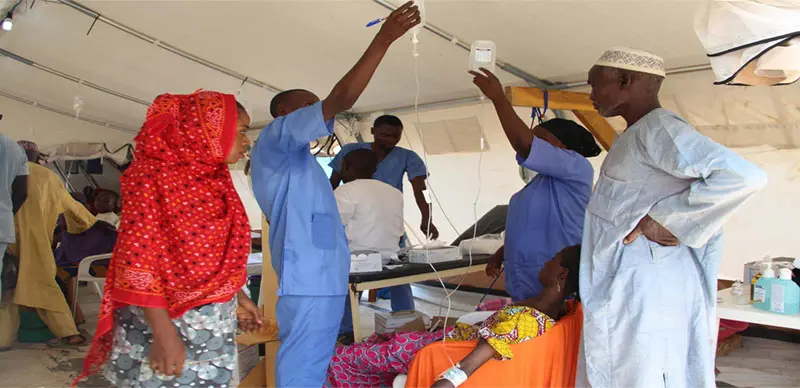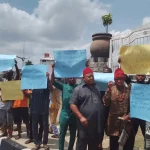Lagos State is grappling with a severe cholera outbreak that has claimed 21 lives and resulted in 401 suspected cases, according to the State Ministry of Health. The outbreak has notably impacted several local government areas, including Lagos Island, Kosofe, Ikorodu, and Eti Osa.
Dr. Kemi Ogunyemi, Special Adviser to the Lagos State Governor on Health, provided an update, revealing an increase in both cases and fatalities. She attributed the rise in cases to the large gatherings during the Ileya festivities but noted that recent government interventions are starting to curb the spread.
“The state government, through the Ministry of Health and other agencies, is maintaining rigorous surveillance and implementing targeted programs to manage the outbreak,” Ogunyemi said. Efforts include the collection of water, food, and beverage samples to identify contamination sources and enhanced surveillance in affected areas.
The Ministry of Health is working closely with the Ministry of Environment and its agency, the Lagos State Environmental Protection Agency (LASEPA), to manage the situation. Schools are also being monitored to protect students as they return from break.
Ogunyemi urged residents to practice good hygiene and seek medical attention if they experience symptoms like watery diarrhea, vomiting, abdominal pain, and fever. She emphasized that cholera treatment is available free of charge at public health facilities.
Governor Babajide Sanwo-Olu expressed his commitment to providing quality healthcare and extended gratitude to local and international partners, including UNICEF, WHO, NCDC, and the Red Cross, for their support.
Causes of Cholera and Government Response
Cholera, caused by the bacterium Vibrio cholerae, spreads through contaminated water and food, particularly in unsanitary conditions. Following the outbreak, the Lagos State government activated its Public Health Emergency Operations Centre (PHEOC) at Mainland Hospital, Yaba.
The initial cases were reported in 29 wards across multiple local government areas, with laboratory tests confirming the O-1 subtype of the bacterium, which is associated with more severe disease. The government has distributed Oral Rehydration Solutions (ORS) and conducted public health education campaigns to control the outbreak.
No Surge in Cases at LASUTH
Professor Adetokunbo Fabamwo, Chief Medical Director of Lagos State Teaching Hospital (LASUTH), stated that the hospital had discharged the five cholera patients admitted last week and had not seen a surge in new cases. He reassured the public that the overall number of cases in the state is decreasing.
Public Health Measures and Community Involvement
The Lagos Water Corporation (LWC) has initiated measures to ensure safe drinking water and is conducting extensive water quality monitoring. Residents are advised to avoid untreated water and to bring water samples to LWC for testing.
The Lagos Waste Management Authority (LAWMA) has directed Private Sector Participant (PSP) operators to ensure 24-hour waste evacuation. LAWMA Managing Director Dr. Muyiwa Gbadegesin emphasized the importance of proper waste disposal and hygiene to curb the spread of cholera.
Historical Context and Ongoing Challenges
Lagos has a history of cholera outbreaks, often exacerbated by migration, overcrowding, and poor sanitation. Open defecation and improper waste disposal contribute to water contamination, while overcrowded living conditions and inadequate sanitation facilities facilitate the rapid spread of the disease.
Public transportation, crowded markets, and gatherings increase the risk of transmission, straining the healthcare system. Addressing these challenges requires a coordinated effort involving public health authorities, healthcare professionals, and community engagement.
Effective control of cholera in Lagos will necessitate prioritizing interventions related to water, sanitation, and hygiene, along with continuous public health education and community involvement.







2 Comments